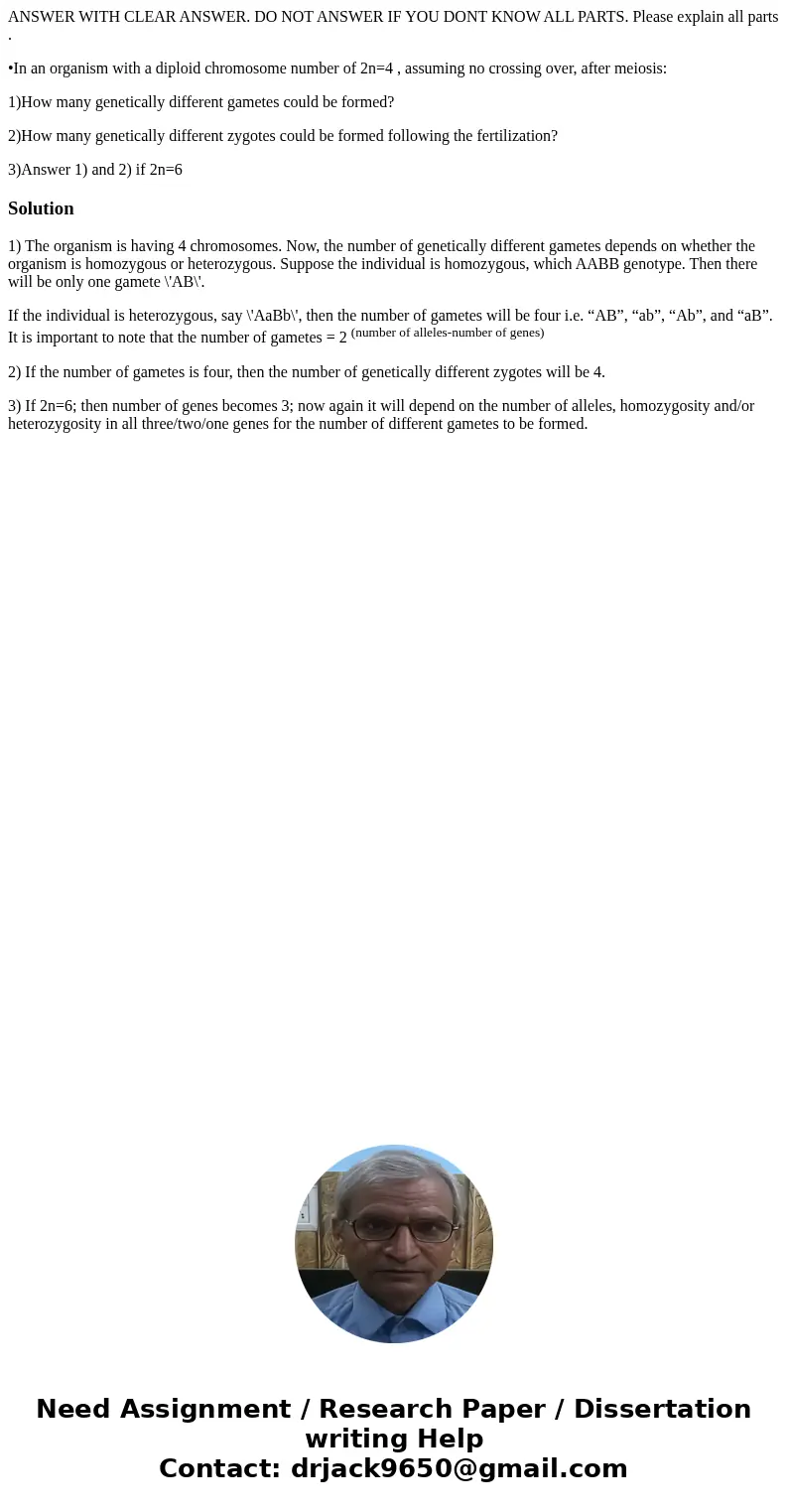ANSWER WITH CLEAR ANSWER DO NOT ANSWER IF YOU DONT KNOW ALL
ANSWER WITH CLEAR ANSWER. DO NOT ANSWER IF YOU DONT KNOW ALL PARTS. Please explain all parts .
•In an organism with a diploid chromosome number of 2n=4 , assuming no crossing over, after meiosis:
1)How many genetically different gametes could be formed?
2)How many genetically different zygotes could be formed following the fertilization?
3)Answer 1) and 2) if 2n=6
Solution
1) The organism is having 4 chromosomes. Now, the number of genetically different gametes depends on whether the organism is homozygous or heterozygous. Suppose the individual is homozygous, which AABB genotype. Then there will be only one gamete \'AB\'.
If the individual is heterozygous, say \'AaBb\', then the number of gametes will be four i.e. “AB”, “ab”, “Ab”, and “aB”. It is important to note that the number of gametes = 2 (number of alleles-number of genes)
2) If the number of gametes is four, then the number of genetically different zygotes will be 4.
3) If 2n=6; then number of genes becomes 3; now again it will depend on the number of alleles, homozygosity and/or heterozygosity in all three/two/one genes for the number of different gametes to be formed.

 Homework Sourse
Homework Sourse